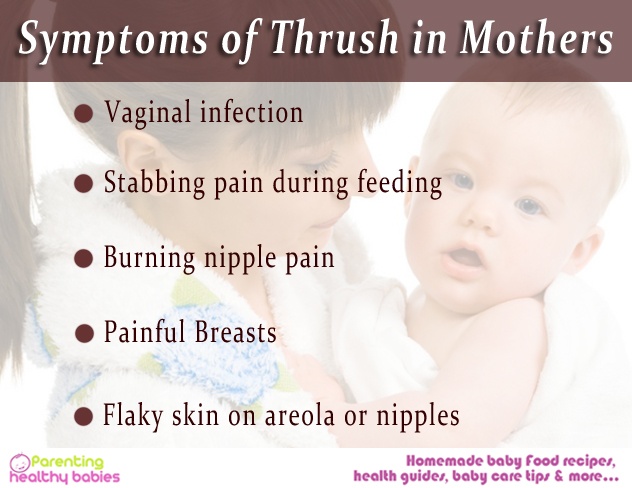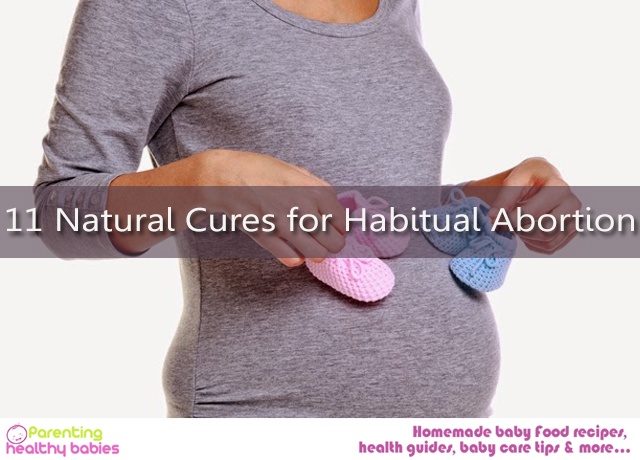It is a very less known fact that breastfeeding mothers get thrush too. But it is not uncommon, as many breastfeeding mothers suffer from it. A breastfeeding mother is likely to get thrush infection on the areola of the breast or nipples. A mother suffering from thrush experiences immense pain between and during each feed. Read on to understand the signs and symptoms of thrush in moms.
How does breastfeeding moms contract thrush?
Thrush is contagious and both the mother and baby keep passing it on to each other. One of the major reasons for contracting thrush is your baby passes it on to you. If you or your baby gets thrush first, it is important to seek medical help and get treated as soon as possible, else you both will be passing the infections back and forth to each other.
Other reasons include antibiotics given to mom during labour to stop group B streptococcus infection which kills good bacteria as well and cause yeast infections in new mothers. There is no hard reason for thrush to occur in mothers and babies. It is just that some mothers are extremely susceptible to yeast infections. A high sugar diet can also be a major factor for yeast to thrive and cause infections in mothers.
Signs and Symptoms of Thrush in Mothers
Like babies, nursing mothers also suffer from thrush. Many women dismiss it as sore nipples and pain during breastfeeding. But in many cases, women suffer from thrush even without knowing it. Some of the signs include
1} Flaky skin on areola or nipples
Flaky skin on the nipples or areola may not always be skin rash or dry skin. Sometimes it is a warning sign of yeast infection in the mothers causing thrush.
2} Painful Breasts
Many women suffer from painful breasts without even knowing the reason to it. It is often ignored and overlooked as being a normal scenario in breastfeeding.
3} Burning nipple pain
Nipples don’t hurt only due to baby’s sucking movement. One of the underlying causes of burning nipple pain could be due to thrush in women.
4} Stabbing pain during feeding
If mothers are experiencing a shooting or stabbing after and during feeding, it is advisable to get checked. There is a high probability that it could be a sign of yeast infection.
Read More: 11 Tips To Stop Breastfeeding
5} Vaginal infection
Although not linked to the baby, a vaginal infection is one of the symptoms of developing thrush in the body and requires immediate attention.
Read More: 21 Home Remedies for Getting Rid of Vaginal Odour
Treatment of Thrush in New Mothers
With the help of treatment, many women are able to overcome thrush and continue breastfeeding. Since thrush is contagious, it can be easily spread to babies. Hence, immediate treatment is required to prevent it from spreading. Following are some treatment options for thrush in mothers
1} Topical Anti-fungal creams
On the advice of your doctor, you can apply anti-fungal cream “Nystatin” to treat the yeast infection on the breasts. This also helps in preventing the thrush from passing to your baby and vice versa. Ensure to apply this cream after nursing so that you have an application time of about 3 to 4 hours between feeds.
2} Probiotics
Yoghurt is one of the best supplements to fight yeast infections. It is rich in good bacteria that combat yeast infections and reduces the symptoms of thrush in women.
3} Painkillers
If you are suffering from stabbing and shooting pain in the nipples and breast, taking painkillers will provide temporary relief to pain. Painkillers like ibuprofen taken every 6 hours will give your relief from pain until the treatment starts working.
4} Balanced diet
Often a weak immune system makes you susceptible to infections. A healthy balanced diet gives you a strong immune system which helps fight infections in the body. Ensure that you eat a healthy balanced diet to ward off yeast infections.
Read More: 21 Must-Have Foods in Your Breastfeeding Diet
Tips to Prevent Thrush in Mothers
Although, it is not possible to completely avoid the risks of developing thrush in mothers, a few tips can help in its prevention. They are
- Wear a clean cotton bra every day. Change twice a day if required especially if you are nursing and experiencing leakage. Ensuring a dry environment protects from infections.
- Clean the nipples after every feed. Do not allow milk remains attached to the nipples as they are a perfect environment for yeast to thrive.
- Wash your hands particularly before handling the baby.
- Use disinfectants or sanitizers on baby toys, breast pumps, feeding bottles, and pacifiers to avoid any risk of infections.
It takes time and patience to deal with thrush, as it does not go away so easily as one contracts it. Mothers have to take the extra pains to suffer the problem as well as prevent their babies from getting it. Mothers should exhibit a great deal of strength and perseverance to help overcome thrush and take care of their little ones.
References
https://www.babycenter.com/0_thrush-in-breastfeeding-moms_8486.bc?page=2













